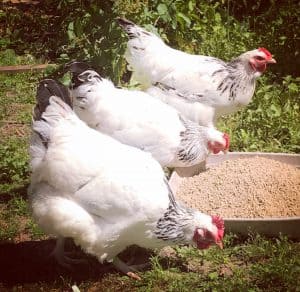This blog shows some of our favourite photos of our Light Sussex – all taken at various branch farms of Incredible Eggs. We hope you enjoy!
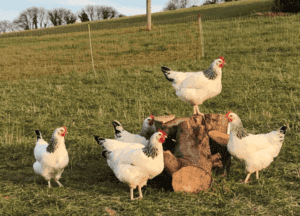 The Sussex is one of the oldest pure breeds of English chickens. The breed originates from Sussex in South East England and was shown at the first ever poultry show at London Zoo in 1845. However, although they may have looked somewhat different to the Sussex we know today, the original birds are thought to have been in England at the time of the Roman invasion of 43 A.D!
The Sussex is one of the oldest pure breeds of English chickens. The breed originates from Sussex in South East England and was shown at the first ever poultry show at London Zoo in 1845. However, although they may have looked somewhat different to the Sussex we know today, the original birds are thought to have been in England at the time of the Roman invasion of 43 A.D!
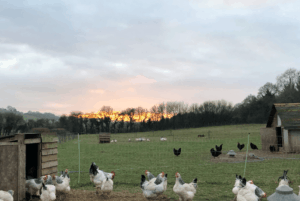
‘Chicken mania’ really took off in Victorian times. Many new ‘exotic’ chicken breeds were being imported and this is when many of the refinements to the breed and colour took place. Amongst others, the Sussex was bred with Cochins, Dorkings and Brahma to create the bird we know today.
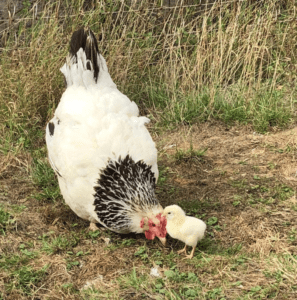
Sussex, Surrey and Kent were the main counties supplying poultry to the London markets at this time. The Sussex was created to be a ‘dual-purpose’ bird – it is an excellent layer, but also has a heavy-set build, which means they have a substantial amount of meat. This fitted well with demand from London.
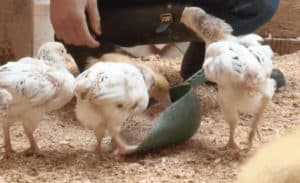
It was eventually superseded by hybrids and broiler birds in the 1940’s and 50’s. These were specifically bred for either egg or meat production. However, traditionalists still preferred the Sussex and this continues to be true today.
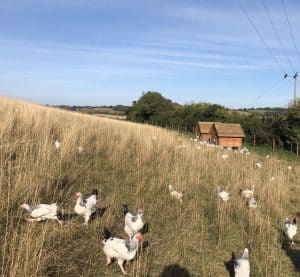
Eight colour varieties of the Sussex are recognised by the Poultry Club of Great Britain: brown, buff, coronation, light, red, silver, speckled and white.
We breed the colour known as ‘light’ here at Incredible Eggs. Adult birds of this colour have a white body with a black tail and black wing tips. The feathers around the neck are called hackle feathers and each one is black with a fine white lace around the edge.
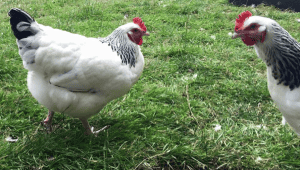
Light Sussex hens lay approximately 180–200 tinted eggs per year, the shells of which range in colour from a delicate pink to a soft peach.
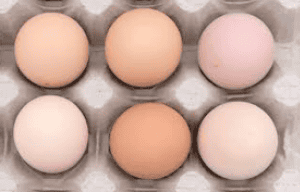
Sussex are a docile but confident and friendly breed that is easy to handle. They love to forage and are very good at it, gathering much of their needs from the garden.
You will often find the eggs from this fabulous old breed in our chick hatching kits.
